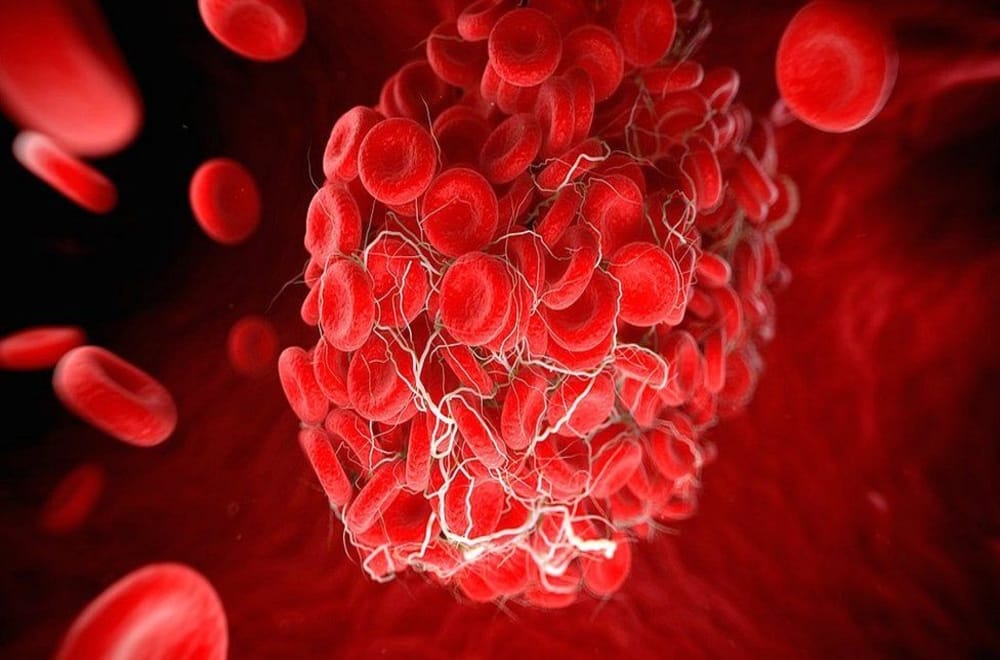Frequently Asked Questions About Blood Clots

Please read ahead to learn the answers to frequently asked questions about blood clots we get from you.
What Causes Blood Clots To Form?
A blood clot, or thrombus, forms as a result of thickened (coagulated) blood, which is necessary for healing skin wounds, but can prove dangerous if the clot blocks blood flow to an essential organ like the brain, heart, or lungs.
How Do You Know If You Have A Blood Clot?
Though symptoms may vary depending on the clot location, size, and what caused it, there are several warning signs to watch out for;
- Skin tenderness, redness, and warmth in the area of the clot
- Swelling
- Dizziness
- Numbness or weakness
- Chest pain
- Shortness of breath
- Nausea or vomiting
- Breaking out in a cold sweat
Can Stress Cause Blood Clots?
Yes, in some cases, studies have shown that intense stress may increase the risk of a blood clot or other cardiovascular event, especially in those with pre-existing atherosclerosis.
What Does A Blood Clot Feel Like?
Symptoms of blood clots vary according to the area of the body in which they occur and may include chest pain and shortness of breath, or swelling, warmth, and pain or sensitivity in a specific area, such as your leg. In general, clots are an indication of a serious condition and warrant immediate medical attention.
Will A Blood Clot Go Away On Its Own?
The body naturally forms blood clots when, for example, you get a cut or other minor injury. These do, in fact, dissolve when they’re no longer needed. However, the blood clots involved in more serious or even life-threatening conditions, such as deep vein thrombosis, stroke, or heart attack, may require medical treatment to dissolve.
Does Covid-19 Cause Blood Clots?
Yes: Blood clotting abnormalities are a relatively common complication of Covid-19. These blood clots can result from bed rest during hospitalization, inflammation related to the infection, or a rise in the levels of coagulating (blood-clot-forming) proteins in the blood.
Should I Take Aspirin To Prevent Blood Clots?
Not without your doctor’s approval. Taking aspirin daily as a preventive measure used to be widely recommended, but this is no longer considered safe for everyone. Now, if you’re considered high risk for blood clots, your doctor may suggest a low-dose daily aspirin, but if you’re not at risk, the side effects may outweigh the benefits.
How Can I Prevent Blood Clots Naturally?
The best way to prevent blood clots from occurring is to reduce your risk factors through lifestyle changes, such as;
- Not smoking
- Getting regular exercise
- Not sitting for extended periods of time
- Maintaining a healthy weight for your frame
- Reducing your sodium intake
- Taking any medications as prescribed by your doctor
How Can I Prevent Blood Clots After Surgery?
After surgery, your body naturally increases clotting factor production to heal any affected tissues and blood vessels, which can mean you may be at a higher risk for a blood clot. To prevent clots from forming after surgery, your doctor may;
- Prescribe a blood thinner, such as warfarin or heparin
- Recommend that you begin moving around as soon as you’re able
- Suggest that you wear compression stockings while you recover
References
The sources that were used in this article were written by Jennifer Whitlock, Dawn Stacey and Richard N. Fogoros. You can find the original sources here.







